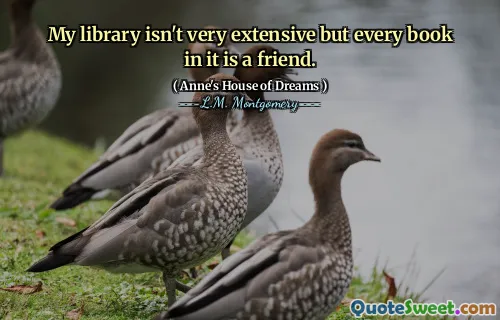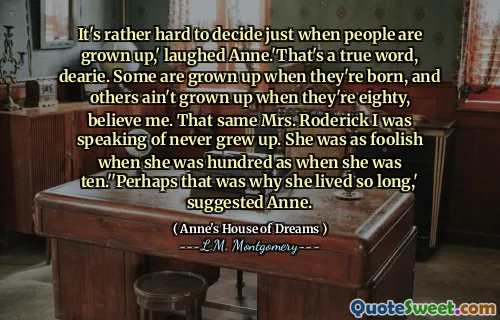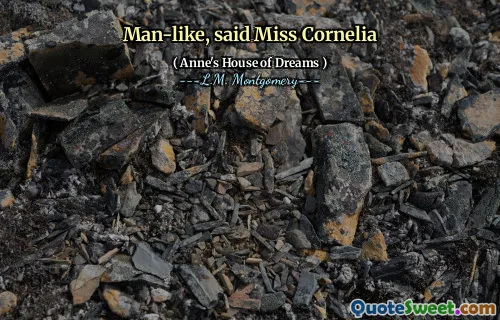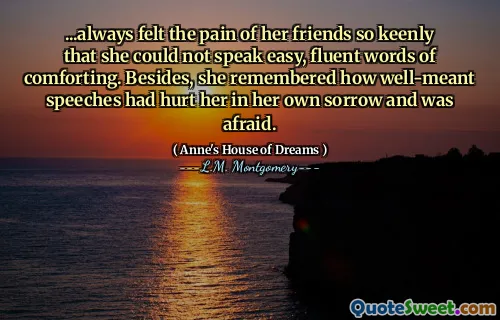
It's rather hard to decide just when people are grown up,' laughed Anne.'That's a true word, dearie. Some are grown up when they're born, and others ain't grown up when they're eighty, believe me. That same Mrs. Roderick I was speaking of never grew up. She was as foolish when she was hundred as when she was ten.''Perhaps that was why she lived so long,' suggested Anne.
In "Anne's House of Dreams," Anne reflects on the concept of maturity, joking that determining when someone becomes an adult is challenging. She shares her thoughts with a friend, noting that some individuals seem mature from birth, while others remain childlike well into old age. This observation highlights the idea that age does not necessarily equate to wisdom or maturity.
Anne then introduces the example of Mrs. Roderick, who, despite her advanced age, retained a youthful foolishness throughout her life. This conversation suggests that perhaps her whimsical nature contributed to her longevity. Through this dialogue, the author explores the nuances of growing up and the varying ways people engage with life at different ages.









